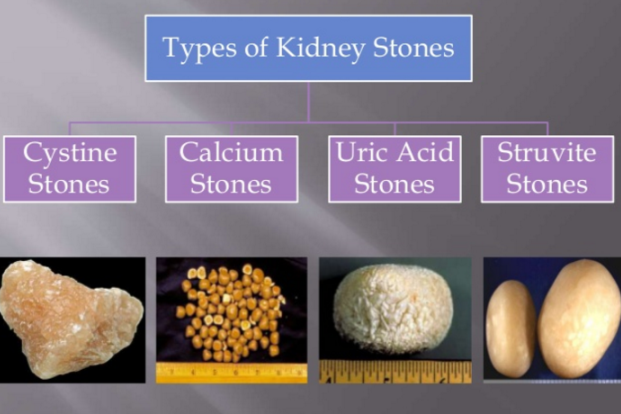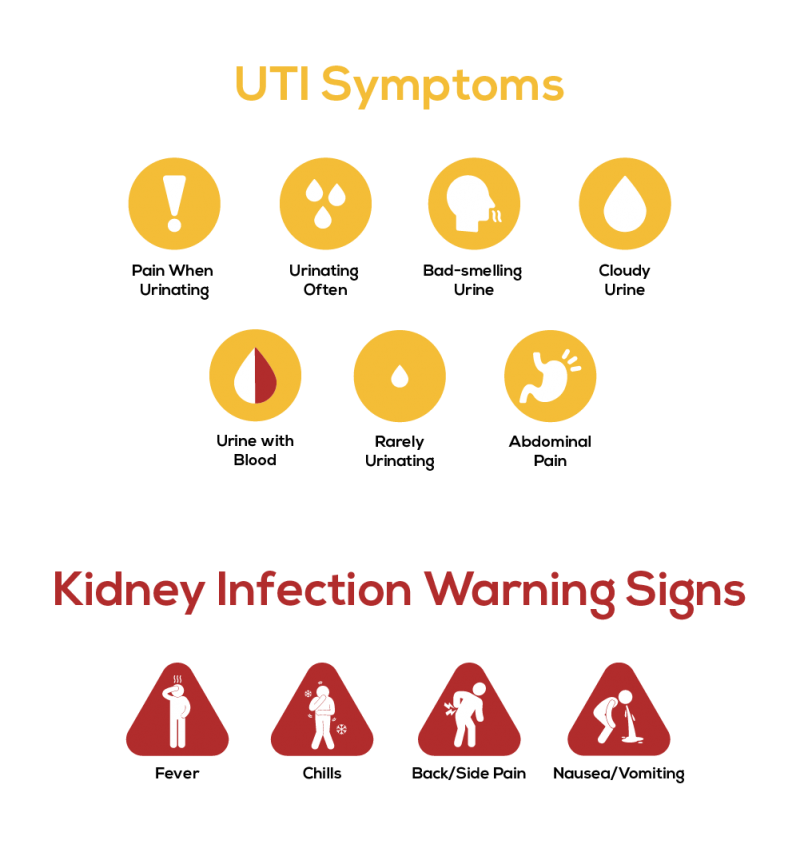Understanding the Secret Distinctions In Between Kidney Stones and Urinary System System Infections: An Extensive Introduction for People
Comprehending the differences between kidney stones and urinary system infections (UTIs) is crucial for clients that might be experiencing comparable signs yet face greatly different health and wellness difficulties. As we check out these crucial aspects, it ends up being clear that recognizing the unique features of each condition can greatly affect individual end results.
Summary of Kidney Stones
The formation of kidney stones, a often incapacitating and unpleasant problem, underscores the critical value of maintaining renal wellness. Kidney stones, also called renal calculi, are strong masses that create from crystals in the urine. These stones can differ in dimension from a grain of sand to a golf ball and can live in any kind of part of the urinary system system. The key sorts of kidney stones consist of calcium oxalate, calcium phosphate, uric acid, struvite, and cystine stones, each with distinctive causes and risk aspects.
Numerous factors add to the formation of kidney stones. Additionally, metabolic disorders and specific clinical conditions may predispose individuals to stone development.
Symptoms of kidney stones can consist of serious flank pain, hematuria, and queasiness, which often motivate urgent medical analysis. Treatment alternatives differ, ranging from boosted liquid consumption and nutritional modifications to clinical treatments such as lithotripsy or medical removal, depending on the dimension and location of the stones. Comprehending these aspects is important for effective avoidance and administration.
Overview of Urinary Tract Infections
Urinary system tract infections (UTIs) stand for a typical yet significant health and wellness issue, affecting numerous individuals every year. These infections occur when microorganisms get in the urinary system, that includes the kidneys, ureters, bladder, and urethra. Most of UTIs are caused by Escherichia coli, a kind of germs generally located in the intestinal system. While UTIs can affect any person, they are especially widespread in women because of anatomical differences that assist in bacterial access.
The danger aspects for creating a UTI include sexual activity, certain types of birth control, urinary system retention, and a background of previous infections. Straightforward UTIs are normally limited to the bladder and are extra typical in healthy and balanced individuals, while complicated UTIs may involve the kidneys and occur in those with underlying health issues.
Prompt medical diagnosis and treatment are necessary to prevent difficulties, such as recurring infections or kidney damages (Kidney Stones vs UTI). Normally, UTIs are treated with antibiotics, and safety nets can be used for those with regular incidents
Typical Symptoms Comparison
Signs of urinary system tract infections and kidney stones can frequently overlap, resulting in complication in diagnosis. Both conditions can offer with discomfort in the lower abdomen or back, however the nature and area of the discomfort typically differ. In urinary system system infections (UTIs), individuals normally experience a burning feeling during peeing, regular advises to pee, and strong-smelling or cloudy pee. In comparison, kidney stones often tend to trigger serious, pain that emits from the back to the lower abdomen and groin, often referred to as colicky discomfort.
Additionally, UTIs may be accompanied by fever and chills, especially in much more extreme instances, while kidney stones can cause nausea and vomiting because of extreme discomfort. Both conditions can cause blood in the urine (hematuria), however the presence of blood is extra frequently associated with kidney stones. While discomfort throughout urination is a characteristic of UTIs, kidney stones generally offer with even more sharp pain episodes, which may reoccur. Understanding these sign distinctions can assist individuals in recognizing their condition, although medical analysis continues to be important for exact medical diagnosis and treatment.
Medical Diagnosis Techniques
Just how can healthcare experts precisely set apart in between kidney stones and urinary system system infections? The analysis procedure starts with an extensive case history and a detailed testimonial of the individual's signs and symptoms. Medical professionals usually perform a physical exam, which may expose tenderness in the abdomen or flank region, guiding the diagnostic path.
Lab tests play an important function in identifying between these 2 problems. Kidney Stones vs UTI. A urinalysis can recognize the presence of blood, crystals, or germs, which are a sign Discover More Here of either condition. In cases of urinary system system infections, the urinalysis might show a substantial presence of white blood cells and nitrites, while kidney stones may offer with particular crystals
Imaging researches, such as abdominal ultrasound or computed tomography (CT) checks, are important for visualizing kidney stones. These imaging techniques make it possible for health care service providers to examine stone dimension, area, and possible obstructions in the urinary system tract. On the other hand, urinary system system infections typically do not call for imaging unless complications are suspected.
With each other, these analysis approaches empower healthcare experts to precisely detect and separate in between kidney stones and urinary system tract infections, making sure that clients receive proper care and management.
Treatment Choices and Prevention
While both kidney stones and urinary system infections (UTIs) call for prompt treatment, their administration strategies differ significantly.
The treatment for kidney stones often includes discomfort administration, hydration, and sometimes, clinical procedures such as extracorporeal shock wave lithotripsy (ESWL) or ureteroscopy to break or get rid of down stones. People are often suggested to enhance liquid consumption to facilitate stone flow and lower recurrence. Dietary adjustments might additionally be necessary, depending on the stone kind.
In contrast, UTIs are mainly treated with anti-biotics to eradicate the microbial infection. The particular antibiotic recommended relies on the microorganisms identified and local resistance patterns. Added measures, such as boosted fluid intake and urinary anesthetics, might help minimize signs and symptoms.
Avoidance strategies vary as well; for kidney stones, maintaining appropriate hydration and adhering to dietary restrictions can be reliable. For UTIs, preventive approaches consist of appropriate hygiene practices, peing after sexual intercourse, and potentially prophylactic prescription antibiotics for frequent infections. Comprehending these treatment and prevention techniques is essential for reliable monitoring and to lessen the threat of complications related to both problems.
Final Thought

Comprehending the differences between kidney stones and urinary system system infections (UTIs) is pop over to this web-site important for individuals check here that might be experiencing similar symptoms yet deal with significantly different health difficulties. The primary types of kidney stones consist of calcium oxalate, calcium phosphate, uric acid, struvite, and cystine stones, each with distinct causes and threat elements.
